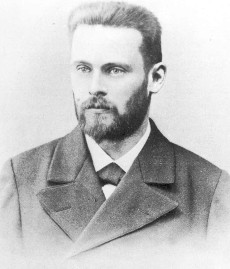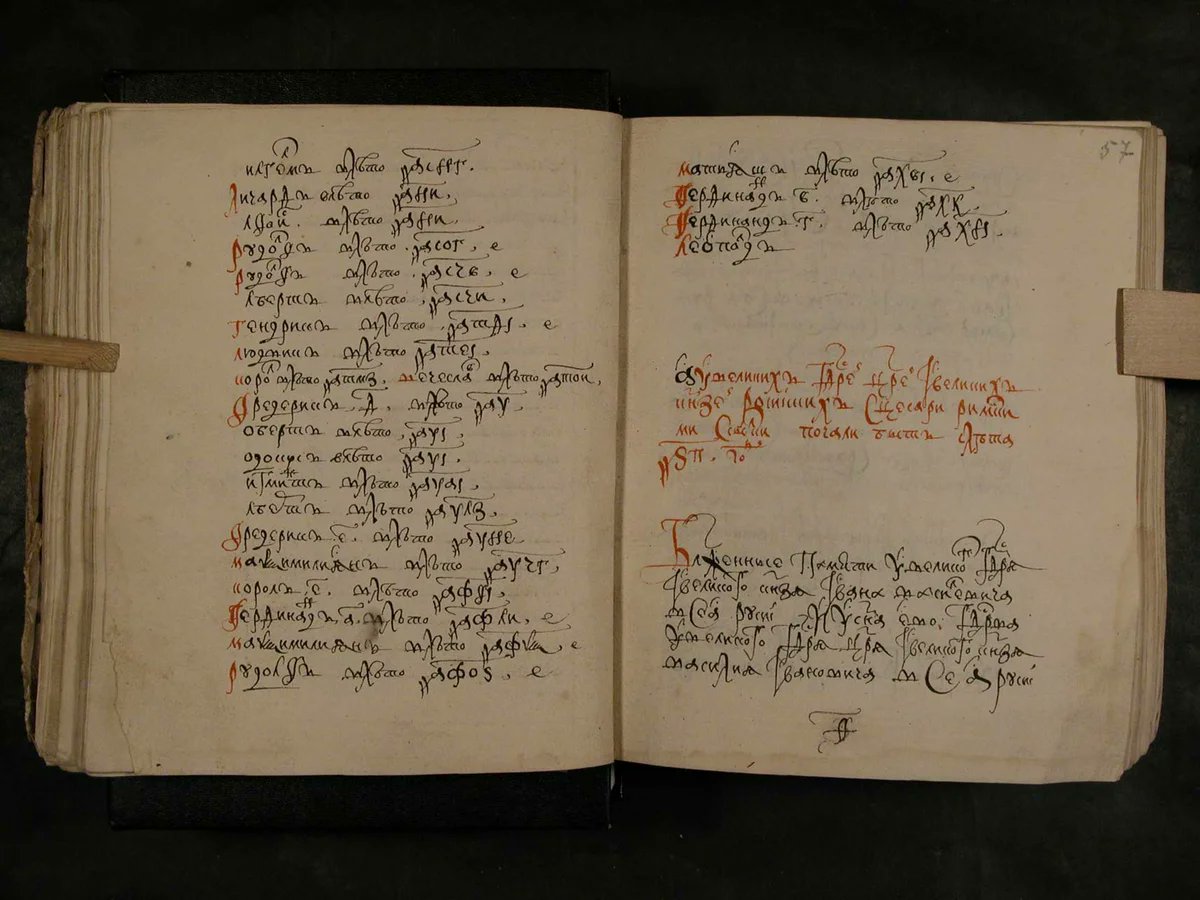Russian theorist of history Lappo-Danilevsky classified primary sources into two categories - 'remains' (остатки) and 'myths' (предания). Let's discuss the difference between these two categories on example of this medal commemorating the annexation of Crimea in 2014 (thread) 

'Myths' are sources that are purposefully created to convey a certain narrative for the future readers. E.g, a chronicle, a speech, a book. Meanwhile, a 'remain' is created for practical purposes and not for the future readers. Accounting books, court cases, military orders 

For example, much of the narrative on Ivan the Terrible's reign, specifically the Oprichnina terror is based on the court chronicle - Litsevoy Svod. It was purposefully created (by Ivan himself?) to convey a certain interpretation of events for the future audience. That's a myth 

Meanwhile state cadastre documents made for taxation purposes, посошные книги, that illustrate extreme desolation of much of Central Russia by the end of his reign, were not created to convey any message for the audience, but for practical administrative purposes. That's a remain 

Sounds simple. A myth is created on purpose, while a remain is a byproduct of a normal life process (business, administrative, legal, personal). In practice it's a bit more complicated. The same source can be either a 'myth' or a 'remain' depending on which data we draw from it
As a general rule, we use a source as a myth when we draw from it the very info its creator wanted to convey to us. But we can use it as a remain when we draw from it that info which the authors didn't really intend to give to us, but gave unwillingly
Let's consider Ivan the Terrible's Sinodik - where he listed people he killed or executed. There are about 3000 names there - mostly of nobility and elite. A typical passage 'Bojar X, his three sons, 10 gentlemen and the household servants - uncounted (без счета); 

From here we can conclude that Oprichnina included indiscriminate massacres of the general population. Whom nobody counter, because nobody was interested. They were killed just because they happened to be there 

So let's look at the medal again. What's interesting here? The dates of the military operation. The end date - March 18 when Russia officially annexed Crimea sounds logical. But the beginning - February 20 - is more tricky 

Putin declared that he ordered the operation on February 23, after ex-President Yanukovich escaped to Russia. So the logic is: Ukraine used to have legitimate government which we recognised. It was illegally overthrown so now we have open hands 

But why does it start with February 20 then? Most probably because the real order was given then, when Yanukovich was technically still in power. Which means that the operation was ordered and prepared during the regime which Russia considered legitimate 

Which presents conflict in a very different way. Russia retrospectively presented its actions as reactive, while they probably were very, very proactive. More like seizing the opportunity than reacting to a crisis
So in a sense this medal might disclose a state secret. Which is very typical. Consider the Winter War with Finland in 1939. It started on November 30, 1939 - officially as a defensive response to a Finnish provocation 

Which is a lie. Soviets planned the attack well in advance. How do we know it? From a Soviet military song "Принимай нас, Суоми-красавица"
Read the lyrics describing the Soviet invasion
Ломят танки широкие просеки,
Самолёты кружат в облаках,
Невысокое солнышко осени
Зажигает огни на штыках.
Tanks are breaking through the forest
Planes are circling in the clouds
The low autumn sun
Is shining the bayonets
Ломят танки широкие просеки,
Самолёты кружат в облаках,
Невысокое солнышко осени
Зажигает огни на штыках.
Tanks are breaking through the forest
Planes are circling in the clouds
The low autumn sun
Is shining the bayonets
*The low autumn sun*. If the war started on November 30 was a reactive response, would we have these lyrics? Unlikely. Apparently, the war was decided and prepared very well in advance - and planned in autumn. The army was prepared, the logistics organised, the songs written
But apparently as it often happens with big enterprises, the war had to be delayed. And delayed. And delayed. And launched much later than it was originally planned. So they kept the original lyrics about the autumn in the song about the war that had been scheduled for the autumn
Why did they keep it? One reason - changing the written lyrics and keeping the rhymes could be laborious. More real reason - nobody in the staff noticed it during all the hurry with preparation for the war. So now we have a nice source-remain on the real plans of Soviet leaders
End of thread
• • •
Missing some Tweet in this thread? You can try to
force a refresh





